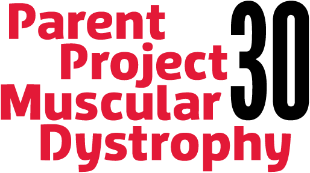
Santhera announced today that their SIDEROS study is fully enrolled, with 254 participants ages 10-34 years old. PPMD is excited to learn that this trial is enrolled, allowing the study to continue and enabling Santhera to discuss the potential for an interim analysis with regulatory agencies. As always, we are so grateful to all of the families participating and we look forward to ongoing updates from the Santhera team.
Read Santhera’s letter to the Duchenne community:
SIDEROS trial community update from Santhera
Dear Duchenne community,
As you know from our previous updates, Santhera’s main focus in the U.S. in the first half of the year has been to bring the SIDEROS clinical study to full enrollment. We are pleased to announce today that the SIDEROS study is fully enrolled, with 254 participants ages 10-34 years old participating in the study. We would like to take this moment to express our deep appreciation to all of the families and young men participating in the SIDEROS study. Your commitment to the study, even in the midst of a global pandemic, has been nothing short of remarkable. It is because of you that the possibility exists to expedite timelines to bring this promising therapy to boys and men with Duchenne in the U.S. We also extend our gratitude to our advocacy partners, including but not limited to, Parent Project Muscular Dystrophy, CureDuchenne, Jett Foundation and Muscular Dystrophy Association, for their efforts to raise awareness about the SIDEROS study.
The SIDEROS study was originally estimated to need 266 participants and a pre-specified analysis was planned to be conducted to confirm this number as we neared full-enrollment. Upon conducting the analysis, we learned that the study population had less variability than expected and the study was powered higher than expected. “Power” is the probability of the experiment finding an effect if there is an effect to be found. A high-powered study means that whatever the results are, they are likely valid and not a result of chance. On the basis of this analysis, Santhera has taken the decision to now complete enrollment into the SIDEROS trial.
In light of the existing COVID-19 pandemic, patient safety and well-being remains our highest priority in all ongoing studies. We continue to support the current study participants and study site investigators for home or local assessments when necessary and requests for direct-to-patient shipping of study medication if needed. Trial participants should reach out directly to their study site team should they have any questions about attending study visits as the country begins to re-open.
In addition to announcing the full-enrollment of the SIDEROS study, Santhera also announced that we will work with the Food and Drug Administration (FDA) and regulatory authorities in Europe to assess the potential to conduct an interim analysis of the SIDEROS study. This means simply that the study’s Data and Safety Monitoring Board (DSMB) will conduct an analysis of the data at an earlier time point than initially planned. Approximately half of the SIDEROS study participants have completed a full 18 months of treatment and about two thirds have completed at least 12 months of treatment. If allowed to conduct an interim analysis, and if that analysis shows overwhelming efficacy, it would be considered unethical to continue with the blinded study. Santhera would then decide to end the study later this year and work with the FDA to pursue regulatory submission in the second quarter of 2021.
What does this mean for the Duchenne community in the U.S.?
Previous feedback from the FDA indicated that they would be open to a submission for approval upon the completion of the SIDEROS study and the results being positive. If the FDA endorses an interim analysis to be performed in the second half of 2020 and the interim analysis shows overwhelming efficacy, then Santhera could work towards a submission for approval in 2021, at least a year ahead of what was initially expected. If the trial continues as originally planned after the interim analysis, then 2022 is the earliest a submission for approval can be pursued in the U.S. All participants in the SIDEROS trial will continue to attend their study visits as planned until otherwise notified. At this time, the U.S. BreatheDMD expanded access program remains closed until an interim analysis is approved and conducted.
Once again, we express our appreciation to the study participants for their dedication to the SIDEROS study during what we recognize as a particularly stressful time for many families across the world. Thank you to the community for helping us achieve full enrollment of the largest ongoing study in DMD.
As a company, Santhera is unyielding in our pursuit of treatments to slow the progression of Duchenne muscular dystrophy. On behalf of Santhera, we will continue to keep you posted on our progress.
With warm regards,
Dario Eklund
Chief Executive OfficerJodi Wolff
Head of Patient Advocacy – U.S
Read the press release from Santhera
Santhera Completes Enrollment of Phase 3 SIDEROS Study with Puldysa® (Idebenone) in Duchenne Muscular Dystrophy (DMD)
Pratteln, Switzerland, May 20, 2020 – Santhera Pharmaceuticals (SIX: SANN) announces full recruitment of its Phase 3 SIDEROS study with idebenone in Duchenne muscular dystrophy (DMD). The sample-size and variability re-assessment performed according to study protocol demonstrated that with the currently enrolled patients the study has a very high power (>99%). Given the strong powering of SIDEROS, the Company is now assessing the potential of conducting an interim analysis to test for overwhelming efficacy with a view of completing the trial early.
With patient recruitment into the 18-month international SIDEROS trial in its final stages, Santhera performed the planned sample size and variability re-assessment in accordance with the study protocol to confirm adequate study power. This blinded analysis showed that variability is lower than anticipated per protocol and, with the current number of enrolled patients, the SIDEROS study has a very high power of over 99% to detect a treatment difference. On this basis, Santhera has taken the decision to complete enrollment into the SIDEROS trial. At present, approximately half of the recruited patients in SIDEROS have completed 18 months of treatment and about two thirds of patients have completed 12 months of treatment.
Owing to the decision to complete enrollment of this advanced study, its very high power as well as the urgent unmet medical need, Santhera is assessing the potential of conducting an interim analysis to test for overwhelming efficacy with a view of completing the trial early. Such an interim analysis would be performed by the independent Data and Safety Monitoring Board (DSMB) to preserve the integrity of the study. If overwhelming efficacy is not established in the interim analysis, the study could continue as planned with the currently enrolled patients and the corresponding high power. However, if overwhelming efficacy is demonstrated, it would be considered unethical to continue with the blinded study and the Company would decide to end the study later this year. This would result in acceleration of corresponding regulatory filings by approximately one year both in Europe and the US.
”Santhera is the only company that has dedicated its clinical development program towards finding a treatment to preserve respiratory function in DMD. The large Phase 3 SIDEROS study was designed to confirm the efficacy of idebenone in patients with respiratory function decline who are concurrently taking glucocorticoids,” said Gunnar Buyse, MD, PhD, Professor of Child Neurology at the University Hospitals Leuven (Belgium), SIDEROS Principal Investigator and Lead Investigator for Europe. “We are truly excited that SIDEROS has completed recruitment and is on track to generate a comprehensive dataset in an area of such high unmet need.”
“There are currently no approved treatments to slow the rate of respiratory function decline leading to respiratory failure, which remains a leading cause of premature death in young men at the advanced stages of DMD,” commented Oscar Henry Mayer, MD, Medical Director of the Pulmonary Function Testing Laboratory at the Children’s Hospital of Philadelphia and Lead Investigator for US. “By slowing the rate of respiratory function decline, we open the possibility to delaying the time to chronic respiratory failure and the need to assisted ventilation and reducing the risk of other life-threatening respiratory complications.”
“We are delighted to have reached such an important milestone and wish to express our sincere thanks to patients and families, caregivers, physicians and study personnel for their support and commitment,” added Kristina Sjöblom Nygren, MD, Chief Medical Officer and Head of Development of Santhera.
SIDEROS, the largest currently ongoing clinical trial in DMD, is a double-blind randomized placebo-controlled Phase 3 study evaluating the efficacy of idebenone in delaying the loss of respiratory function in patients with DMD. Patients on any stable glucocorticoid treatment scheme and irrespective of the underlying dystrophin mutation or ambulatory status were randomized to receive oral idebenone (900 mg/day three times a day) or placebo for 18 months. The primary endpoint of the trial estimates the treatment difference in FVC%p (forced vital capacity % predicted). Patients completing the trial are offered the opportunity to enroll in an open label extension study where all patients receive idebenone. The study is currently conducted in 62 sites in the United States, Europe and Israel. Further information is available at ClinicalTrials.gov NCT#02814019.



 by: Parent Project Muscular Dystrophy
by: Parent Project Muscular Dystrophy

